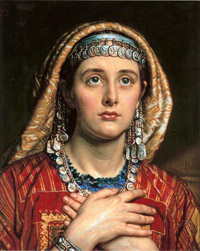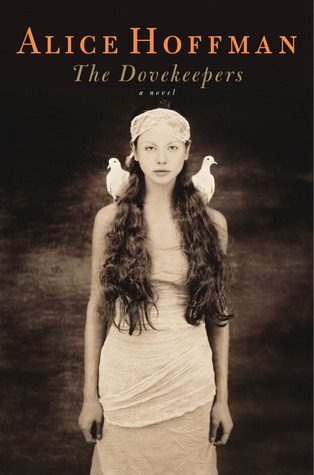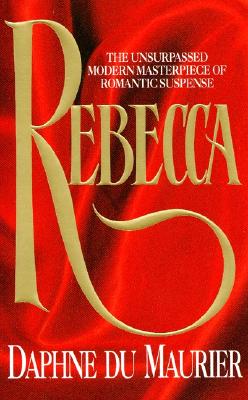I feel kind of silly reviewing this; there's nothing I'm gonna say that thousands of literary scholars, many of who have more degrees than I can ever dream of. I
give a few pieces of advice.
Austen was a very subtle and gifted writer who deserves the over-used title of "unique". I took a class on
a year ago, and it was never a dull moment. To finish this post I'll put up my final essay for the class, in which I argued that Lizzy Bennet married (at least partially) for money. Hopefully it inspires you to go out and buy a copy; if you already have one, I hope you see Lizzy in another light :)
by Lindsey P.
In Moral
Essays (1796), the anonymous author writes,
"Not all the lustre of noble birth, not all the affluence of wealth, not all
the pomp of titles, not all the splendor of power, can give dignity to a mind
that is destitute of inward improvement" (58). Inner cultivation was an
important topic for the Regency period, especially for the period's novelists
who were expected to convey the best morals that people should have. For
novelists like Jane Austen, exemplifying the correct way for women to act meant
she should have special consideration for her stories' plots. In her novel Pride and
Prejudice (1813), fashion, class, and possessions
influence the likelihood of a couple getting together. This concept is reflected
in the novel's famous opening sentence: "It is a truth universally
acknowledged, that a single man in possession of a good fortune, must be in
want of a wife" (Austen 29). Almost every courtship in Pride and Prejudice (however unconventional
that courtship may be) also reveals the significance of finances in a marriage.
The most prominent relationship of the novel, between Elizabeth Bennet and Mr.
Darcy, commonly symbolizes the idea to many readers that class should not be a
barrier to love and marriage. For
example, Angelika Gerber-Pinto Lobo writes, "Unlike other characters in
the novel Elizabeth does not aim to find a husband with a great fortune, but
love remains the chief motive for her marriage with Darcy" (38).
Some scholars
have interpreted Elizabeth's advocacy of romance over money in a marriage as
Austen's 'archetype' of an ideal match. However,
it is evident Elizabeth Bennet's character does acknowledge the importance of
wealth in a loving relationship, and that her motivation for marrying Darcy was
at least partially in accordance with that belief. In other words, Elizabeth's
engagement and marriage to Darcy happens after she considers the consequences of
financial stability over emotional compatibility. Elizabeth’s conclusion is influenced
by three other important married couples in the novel: Charlotte and Mr.
Collins, Lydia and Mr. Wickham, and her parents. To be
clear, Elizabeth, unlike Wickham, does not use Darcy for just his money; rather,
lack of money persuades her to understand her limited options in the English
patriarchal society and how her marriage to Darcy ensures a better future for
her and her family. Recognizing
these themes in Pride and Prejudice
is important since writers like Austen were to exemplify good behavior for
young Regency ladies. In
"The Ethical Mode of Pride and
Prejudice," Giulia Giuffre picks up on
the responsibility novelists had to their readers; she says, "Jane Austen
is always setting up moral oppositions through her characters" (18). Wealth is a critical part of matrimony, and Austen uses her characters to
transmit that idea, whether
one accepts or rejects it. In almost every relationship in the novel, money,
materialism, and class were important factors in marriages.
Before
evaluating these aspects in Pride and
Prejudice, it is imperative to understand the history of marriage in the
Regency because, within Austen's contemporary mindset, one can better appraise
Elizabeth's precarious financial and marriageable position. Most Regency women
did not marry for love, as Walter Edwards Houghton argues in The
Victorian Frame of Mind: 1830-1870 which addresses
British culture of the time period:
In 1854 G. R. Drysdale described
the contemporary situation: 'A great proportion of marriages we see around us,
did not take place from love at all, but from some interested motive, such as
wealth, social position, or other advantages'... In a society so permeated by
the commercial spirit, love could be blatantly thrust aside if it interfered
with more important values. (Houghton 381)
In other words, love typically came second to
finances in courting a spouse; knowing this reveals Elizabeth as a singularly
odd woman for her society. For a classic Regency woman, marrying equaled
meeting appropriate societal expectations. The inference is that a woman was
supposed to feel a drive to elevate from the role of "daughter” to
"wife." In Gerber-Pinto Lobo's essay entitled "Questioning the
Myth of the Happy Marriage in the Nineteenth-Century English Novel," she
opens with several beautifully written sections on the history of marriage
during the Regency period. One of her observations is the liberty from parental
dominance that marriage brings. Although Elizabeth's relationship with her
father was positive, her relationship with her mother was a constant irritation
due to Mrs. Bennet's unrelenting pursuit of any
man to marry to one of her girls. Interestingly, Gerber-Pinto Lobo sides with
Mrs. Bennet in prioritizing marriage for eligible ladies: "Marriage
provided economic security and protection for women and, for these reasons, was
one of their most fundamental aims in life" (11). Leaving the home meant the financial strain of
caring for a daughter was lifted from her parents, a problem with which both
Elizabeth and Charlotte likely would have been concerned. As Austen herself
never married, she would have also empathized with this stress. Her characters embody
societal concerns of the time, in this instance, the role of money in women’s
love lives.
Each
of the romantic relationships in the novel exemplify the kinds of marriages
contemporary women could look forward to: there was the proper courtship of Mr.
Bingley and Jane, the wild, lustful elopement of Lydia and Mr. Wickham,
Charlotte's pragmatic and passionless relationship to Mr. Collins, the bitter
resignation between the Bennet parents, and finally the roller coaster ride of
romance that Elizabeth and Darcy shared. Giuffre's essay focuses on the importance
of truthfulness, ethics, and first impressions for the characters in the novel.
Most of her evaluation is pointed at Lizzy, who makes many errors in her
treatment of others, especially Darcy. When Elizabeth finds out he has helped to
smooth over Lydia's scandalous elopement, Elizabeth finally understands his
generosity, "more generous in that his pride, both personal and familial,
is more nearly concerned" (Giuffre 23). This moment in the novel reveals
her enlightened insight into his good nature and prompts her to reconsider his
good character. "Oh! how heartily did she grieve over every ungracious
sensation she had ever encouraged, every saucy speech she had ever directed
towards him. For herself she was humbled; but she was proud of him" (368).
While this shift makes her think more positively of him, she doesn’t consider
marrying him until she sees his huge house. When
Elizabeth visits Pemberley for the first time with all of its rich decorations,
well-maintained grounds, and impressive stateliness, she remembers poignantly
Mr. Darcy’s first marriage proposal and, for the first time, comprehends what
all he was offering her.
‘And of this place,’ thought she, ‘I might have been
mistress! With these rooms I might now have been familiarly acquainted! Instead
of viewing them as a stranger, I might have rejoiced in them as my own, and
welcomed to them as visitors my uncle and aunt.’ (Austen 286)
In other
words, Darcy's offer didn’t involve just his hand and person, but also the
right to call Pemberley her home, the wealth that went along with the estate,
and the pride to show it off to her family. This insight affects Elizabeth on
such a deeply personal level because she is constantly reminded by her mother
that their home will never stay their own; when Mr. Bennet will die and they
have to leave Longbourne, the Bennet women's futures are uncertain. Elizabeth's
reality is a striking contrast to that of Mr. Darcy, who has grown up on this
estate and will have it for the rest of his life. Following the laws of
primogeniture, Darcy will pass Pemberley on to his heirs, who, Elizabeth
realizes, might have been hers. However, because she refuses him, she cannot be
guaranteed such an encouraging future. To comfort herself, possibly to prevent
herself from completely facing what a mistake she has made, she interprets
Pemberley as a place where her family would not be welcome: "'But no-'
recollecting herself,- 'that could never be: my uncle and aunt would have been
lost to me: I should not have been allowed to invite them'. This was a lucky
recollection- it saved her from something like regret" (286). Mr. Darcy’s earlier
criticism of her family leads her to believe that no one, not even her well-mannered
and urbane aunt and uncle, would be welcome at such a remarkable house. In this
example, Darcy’s wealth would have been a barrier between her family and
herself had she accepted him.
Still, later on in the novel, she
admits to Jane that she fell in love with Darcy then: "I must date it from
my first seeing his beautiful grounds at Pemberley" (415). Though Giuffre
sees this transformation as "an attractive and meaningful progression
towards Elizabeth's meeting with the man himself" (23), evidence suggests
one should interpret the event as more pragmatic than romantic. She compares
Pemberley to her almost-certain poverty as a single woman. Even though she is
someone who claims to value a man’s honor and personality above all else, his rich
estate is nonetheless a striking reality check for her. Mr. Collins’ warning
that she may never be offered another marriage proposal after his own doesn’t
scare Elizabeth when he says it. However, when she tours Pemberley, she perceives
the security that an upper class member of society has, and what she could have
gained if she had respected Mr. Darcy enough to accept his proposal, or had put
into practice Charlotte’s sensible theory on marriage.
Charlotte
is logical above all else, especially in the matters of love. She tells
Elizabeth that men and women would do well to not get to know each other before
getting married, as all it could do was give each other excuses to stay single.
Moreover, she asserts that happiness is not likely to come from one person
anyway, so the most prudent method of living one’s life is to first find
security, especially in the matters of finance, rather than worry about love in
a marriage. This character and her marital situation are closely evaluated by
Weijie Chen in her essay "How Female Characters Are Portrayed: An
Investigation of the Use of Adjectives and Nouns in the Fictional Novel Pride and Prejudice."
Chen recognizes the limited position women were put in during the Regency period.
Women of Charlotte's class were not able to take on jobs and were reliant on their
husbands for income and property. Chen says, "This kind of dependence
forced them to take marriage as their career... Believing in this, many women
chose to marry property instead of a man" (8-9). As a man of one house, a
parsonage, and a domicile inheritance, Collins is certainly a catch, financially
speaking; she explains as much to Lizzy, "I am not romantic... I never
was. I ask only a comfortable home; and considering Mr. Collins's character,
connections, and situation in life, I am convinced that my chance of happiness
with him is as fair, as most people can boast on entering the marriage
state" (165). Moreover, in Elizabeth and Charlotte's case, staying single
would mean snubbing the societal expectation of advancing to the role of
"wife" and remaining a financial burden on their parents. Therefore,
the best course of action is to marry well and soon to alleviate the dread of a
spinster future.
Even though Elizabeth denies her
friend's perspective on marriage during their earlier debate, she seems to
reconsider her position later in the novel; she says to Darcy during her visit
to Rosings, "My friend has an excellent understanding—though I am not
certain that I consider her marrying Mr. Collins as the wisest thing she ever
did. She seems perfectly happy, however, and in a prudential light it is
certainly a very good match for her" (219). Though Collins is not an
attractive man, mentally and emotionally, to Elizabeth's taste, she can say
that Charlotte's marriage provides more of a happy future than Elizabeth has
before she marries Darcy. Her friend's comfortable marriage to
her cousin is one of the triggers which cause her to reconsider her
relationship with Darcy, and become more open to the idea of marrying him. Although
Elizabeth is not as pragmatic as Charlotte in terms of romantic love, financial
security and peace of mind influenced Elizabeth's love life more than modern,
independent women may comprehend.
The second marriage that influences
Elizabeth to reconsider her position on the implication of money in marriage is
Lydia and Wickham's. Their motivations were impractical and based on momentary,
lustful needs, the opposite premise of Charlotte’s marriage. Lydia loved Wickham
for his handsomeness, but didn't intend to marry him. Rather, she was looking
for little more than an eighteenth century one-night stand. Wickham was also
looking for just a fun time, though his history with Darcy's sister shows his
other motivator to be with a young gentlewoman is money. Elizabeth correctly
classifies Wickham as the regency equivalent of a gold-digger when she tells
her aunt and uncle, "[He] will never marry a woman without some money. He
cannot afford it" (324). Once he
knows he can be compensated monetarily for marrying Lydia, he agrees to a
wedding, thus saving her reputation. When Elizabeth heard of her sister's
disappearance to the countryside with the rakish Wickham, her first reaction
is, "She has no money, no connections, nothing that can tempt him to—she
is lost for ever" (318). In Kristin Flieger Samuelian's essay
"Managing Propriety for the Regency: Jane Austen Reads the Book," she
appropriately identifies the whole fiasco as "Elizabeth's crisis, not
Lydia's" (292). Lydia does not have the foresight to comprehend what her
future as Mrs. Wickham will be like. Elizabeth, who knows his history of
jilting upper class women and gambling, as well as his propensity for
irresponsibility and inconsistency, does foresee Lydia's future. She is
horrified at the disregard of propriety both young lovers have, and she acutely
feels how close of a call she herself had with the tricky and seductive Mr.
Wickham.
Flieger Samuelian uses the event to
draw the distinction between the middle class and the upper class; she says
Elizabeth was accepted by the likes of high-borns like Darcy and Bingley
because of her good taste and sensibility (285). The author's point is
well-taken; furthermore, this is the turn in the novel where Elizabeth aligns
herself with the people who have respect for the influence of money matters in
a relationship. She does not want to see herself in Lydia's impulsive shoes; love,
after all, cannot fill an empty stomach. In "No Love for Lydia: The Fate
of Desire in Pride and Prejudice,"
Dennis W. Allen confirms this viewpoint when he writes, "Society is
created by the defining sets of differences, both the cruel distinction between
what is acceptable in a society and what is not... Rendered quantifiable,
provided with its own internal hierarchies, bounded, desire becomes compatible
with the social order" (440). In other words, when Lydia acts on her
desire for Wickham instead of cautiously flirting as Elizabeth does, she crosses
the boundary that esteemed members of the Regency believe is appropriate for
young ladies. Because of this episode Elizabeth identifies such passion with
inconsideration; “Lydia- the humiliation, the misery, she was bringing on them
all, soon swallowed up every private care..." (319). Elizabeth is also
disgusted by her mother's enthusiastic reaction to Lydia's elopement. Of course,
if one considers Mrs. Bennet's own lackluster marriage, weddings are interesting
events for her to celebrate.
The Bennets’ marriage is the third relationship
that sways Elizabeth to rethink her relationship with Darcy and the importance
of balancing emotions and money in marriage. Lizzy's parents' marriage
exemplify how not to marry. Austen gives little
background on their early relationship, but the following quote shows that the
happy newlyweds soon soured towards each other after the honeymoon phase was
over:
Had Elizabeth's opinion been drawn from her own family, she
could not have formed a very pleasing opinion of conjugal felicity or domestic
comfort. Her father, captivated by youth and beauty, and that appearance of
good humour which youth and beauty generally give, had married a woman whose
weak understanding and illiberal mind had very early in their marriage put an
end to all real affection for her. Respect, esteem, and confidence had vanished
for ever; and all his views of domestic happiness were overthrown. (275)
Austen writes
the depressing viewpoint of the Bennets' marriage from Mr. Bennet's perspective
so readers could feel the weight the unhappiness of their marriage had on
Elizabeth since she aligns her personality more with her father's than her
mother's. Interestingly, the list of qualities for the early stages of the
Bennets' marriage is similar to the ideal situation in which Elizabeth at the
beginning of the novel would like to emulate. However, as evident in the
Bennets' case, emotions change, personalities are not always obvious in the
beginning of a relationship, and appearances can be deceiving. Though Wickham
and Darcy were also lessons in misjudging appearances for Elizabeth, her
parents' failed marriage is undoubtedly a more intimate and sensitive model of
this point. After having been at the Collins' for weeks and enjoying the
contentment there, coming home to her mother's nervous rants and father's
snide, sarcastic comments must have caused for a harsher awakening than before
she came home. Money cannot solve every marital problem, but being pragmatic
enough to not let emotions completely drive one into marriage is the reminder
to Elizabeth of how unimportant emotions are in a relationship.
Another source of contention between
Mrs. and Mr. Bennet is the entailment which will eventually cause their loss of
Longbourne. Mrs. Bennet blames her husband for not doing enough to ensure their
daughters' financial security, and, rather than seeking some way to earn profit
from their estate, Mr. Bennet hides in his study working on several hobbies.
Gerber-Pinto Lobo writes, "[Mrs. Bennet's] desperate pursuit to find
marriageable men for her daughters can, therefore, also be ascribed to her
family's future poverty which she believes to be her husband's fault, who, in her
eyes, failed to fulfill his duties in a sphere to which she has theoretically
no access" (74). As children raised without access to overwhelming wealth,
Elizabeth and her sisters were burdened with concern over their relative
poverty. At the beginning of the novel there is a particularly stressful
situation for Elizabeth when Jane becomes ill because her father cannot spare
enough horses for her to ride in a carriage during a rainstorm. Because Mr.
Bennet cannot afford to take horses from the farm and transport his daughters
according to comparative standards, Elizabeth blames her father for
compromising her sister's well-being. She also blames her mother for Jane's
designed illness because it is part of her mother's plot to ensnare wealthy Mr.
Bingley for Jane. "Her mother attended [Jane] to the door with many
cheerful prognostics of a bad day. Her hopes were answered... The rain
continued the whole evening without intermission; Jane certainly could not come
back. 'This was a lucky idea of mine, indeed!' said Mrs. Bennet...'As long as
she stays there, it is all very well'" (65-66). Elizabeth is frustrated
over her father's inconsideration and her mother's indelicacy during the whole
episode, but ultimately all these problems are caused by the Bennets' lack of
finances.
Given these three loveless
relationships, one would surmise that Elizabeth should strive for a marriage in
which wealth provides security. Moreover, as the second eldest, it would be
important to marry successfully because she may persuade her husband to help
her sisters and parents financially as needed. Indeed, in the final chapter,
readers are told, "Such relief, however, as it was in [Elizabeth's] power
to afford, by the practice of what might be called economy in her own private
expences, she frequently sent [money to Mr. and Mrs. Wickham]" (430). Mr.
Darcy also endeavors to help his brother-in-law find a better position in the
military. Therefore, it is appropriate to assume marrying someone based partially
on their wealth was not irresponsible on Elizabeth's part due to her
community-minded conscience. This insight is emphasized because her parents
could not recover from the strife a lack of money put on their marriage.
Jane Austen wrote novels as a form of
entertainment, and while her story does have a happy ending for almost all her
characters, it does not mean she did it lightly or without a moral in mind. The Lady's
Pocket Library, a contemporary collection of essays that were used
to instruct young women, writes about the responsibility of female novelists:
"To instruct indirectly by short instances, drawn from a long
concatenation of circumstances, is at once the business of this sort of
composition, and one of the characteristics of female genius" (9). From Austen's
characters, and Elizabeth in particular, women readers were to understand the
kinds of marriages which were best to make, and those kinds of relationships
that should be avoided. Self-control is utilized by Charlotte in her marriage,
where Lydia had none; their contrasting situations and the example of her
parents causes Elizabeth to reevaluate her position on money's role in relationships.
It is a popular conception that Darcy and Elizabeth are a couple who defy class
restriction to marry for love. However, the perception of Lizzy as a pragmatic
matchmaker usurps this viewpoint. Her transformation into Mrs. Darcy is about
balancing the importance of love and materialism in a marriage. Therefore,
Austen's Pride and Prejudice is a
morality tale for contemporary readers about marrying the factors of money and
love.
Works Cited
- Allen, Dennis W. "No Love for
Lydia: The Fate of Desire in Pride and
Prejudice." Texas Studies in Literature and Language 27.4 (1985): 425-43. JSTOR. Web. 14 Apr. 2013.
- Austen, Jane, and Patricia Ann
Meyer-Spacks. Pride and
Prejudice: An Annotated Edition.
Cambridge, MA: Belknap of Harvard UP, 2010. Print.
- Chen, Weijie. "How Female
Characters Are Portrayed: An Investigation of the Use of Adjectives and Nouns
in the Fictional Novel Pride and
Prejudice." Diss. Kristianstad University, 2010. Kristianstad University.
Kristianstad University, 30 Mar. 2011. Web. 14 Apr. 2013.
- Flieger Samuelian, Kristin.
"Managing Propriety for the Regency: Jane Austen Reads the
Book." Stud
Romanticism 48.2 (2009):
279-97. JSTOR. Web. 14 Apr. 2013.
- Gerber-Pinto Lobo, Angelika. Questioning the Myth of the Happy Marriage in the Nineteenth-Century
English Novel. Diss. Universität Wien. Wien: Universität Wien Press, 14 Sept. 2010. Web. 14 Apr. 2013.
- Giuffre, Giulia. "The Ethical Mode of Pride and Prejudice." Sydney
Studies 6 (1980): 17-29. Open
Journal Systems. Web. 14 Apr. 2013.
- Houghton, Walter E. The Victorian Frame of Mind 1830-1870. New Haven: Yale UP, 1975. Google Books. Google.
Web. 17 Apr. 2013.
- Moral Essays, Chiefly Collected
From Different Authors.
Liverpool, 1796. Eighteenth
Century Collections Online. Gale.
Web. 12 Apr. 2013.
- The Lady's Pocket Library. Philadelphia, 1794. Eighteenth Century Collections Online. Web. 12 Apr. 2013.

























